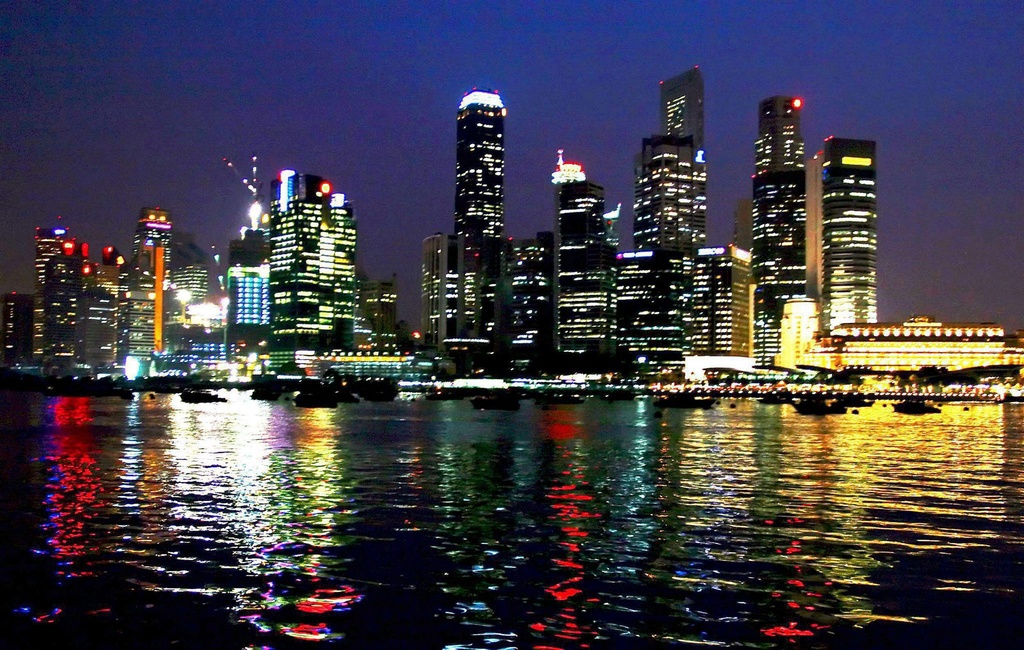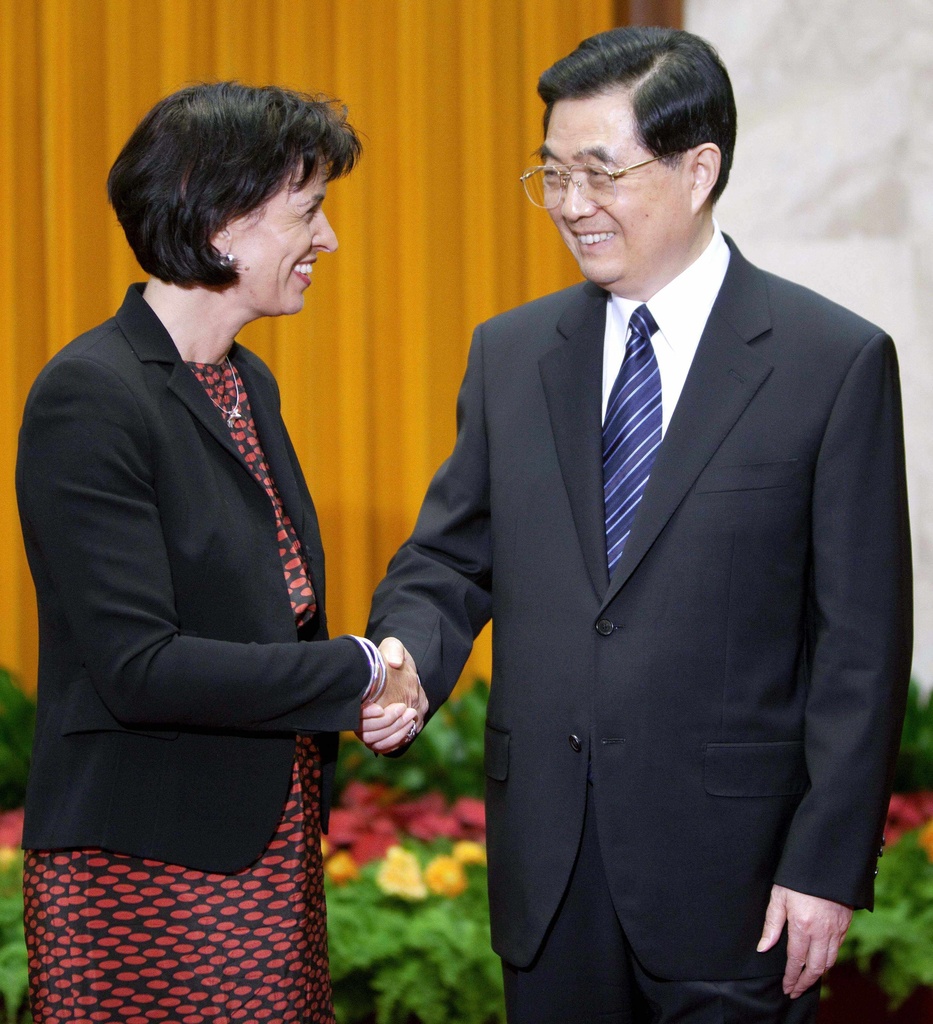Firms must adapt to emerging world order

Swiss firms are being urged to take advantage of the rapid transference of economic power from the West to emerging countries since the financial crisis.
Companies that fail to restructure and diversify their operations to tap into billions of new consumers, and to hold powerful emerging competitors at bay, risk financial ruin, according to experts.
“People have a tendency to think about China as an export power but most of the focus will be on supplying domestic demand – and the same goes for other emerging economies,” Tom Malnight, professor of strategy and general management at the IMD business school in Lausanne, told swissinfo.ch.
Swiss firms are better than European counterparts at accessing these markets, according to the Swiss National Bank (SNB). Some 15 per cent of Swiss exports go to Asia, twice the average of European Union states, SNB chairman Philipp Hildebrand said in a speech last year.
Stripping out Taiwan, South Korea, Hong Kong and Singapore, the value of Swiss exports to emerging Asia has grown by 18 per cent since 2000, compared with 9.6 per cent in the EU.
With the Swiss franc going through the roof against the euro and the dollar, there is even more reason for Swiss exporters to look further afield for both consumers and a base for operations.
“Tremendous arrogance”
But Swiss firms are still exporting nearly two thirds of their goods and services to the EU with the US as the next biggest destination. Malnight called on firms to throw off the old shackles by streamlining European operations to free up more time and resources to devote to emerging markets.
A failure to do so would allow a mass of new local enterprises springing up in emerging economies to close out the market, he believes.
“There are a rapidly growing number of Chinese and Indian companies that are flexible and able to learn quickly,” he said. “The speed at which they are catching up means that if you don’t face up to the future as a company you are going to be facing problems much worse than the currency crisis today.”
“There is a tremendous arrogance and lack of awareness about the pace of change in many of the high growth markets.”
China is still a prime place for Swiss manufacturing companies to set up shop, according to Nicolas Musy, strategy and operations manager at CH-ina, a Shanghai-based consultancy that advises Swiss firms on how to enter the Chinese market.
Having set up a cashmere knitwear factory in China in 1993, Musy is now managing director of LX Precision – a Swiss precision tools firm that employs 200 staff near to Shanghai.
Brand mania
“The main change from when I started out in China [in 1986] is the availability of money,” Musy told swissinfo.ch. “There is now a growing middle class and they only buy what they perceive to be the best.”
“Consumers are very brand oriented. There are very few local high quality brands so most of the cars, mobile phones and TVs are foreign.”
The pace of change in emerging economies is illustrated by the double digit annual economic growth performance of some emerging markets just as Western countries face stagnation.
Credit Suisse researchers have also thrown light on the pattern of consumers in emerging economies. Although wealth is unevenly distributed, the average wealth per adult in China tripled from $6,000 (SFr5,753) in 2000 to $18,000 in 2010.
The increase of wealth is even more spectacular in Indonesia where it rocketed from just over $2,0000 per adult in 2000 to $12,000 last year. In India the figure rose from $2,000 to $4,900 where it is hoped that economic growth will trickle down to improve the lives of the estimated 80 per cent of the population that lives on less than $2 a day.
All change
A separate Credit Suisse survey of 13,000 consumers in China, India, Russia, Brazil, Saudi Arabia, Indonesia and Egypt found that most of the 3.2 billion people (compared with 700 million in western Europe and the United States) expected their personal finances to improve in the next six months.
By surveying a cross section of society in each country, the report found an overwhelmingly optimistic outlook in all but Egypt, and to a lesser extent, in Russia. Some 63 per cent of Brazilians surveyed expected their finances to improve, followed by 45 per cent in China, 43 per cent in India and third of people in Saudi Arabia and Indonesia.
“One of the most striking features of the survey was how generally positive people were,” said Credit Suisse head of global research Richard Kersley.
For Tom Malnight, the challenge for Western companies will be to recognise the changes as they emerge from the financial crisis and subsequent global recession.
“There is no such thing as getting back to normal, that is why companies must be flexible enough to deal with ambiguity and face the new environment,” he told swissinfo.ch.
“What is it going to be like when the primary markets for consumption are the high growth markets? What will happen when the primary currencies for trade are no longer dollars or euro but these local currencies?”
The Credit Suisse emerging consumer study 2011 interviewed some 13,000 adults in China, India, Russia, Brazil, Indonesia, Saudi Arabia and Egypt to test their feelings on future prospects.
Brazilians were the most optimistic consumers with 63% expecting improvements to their personal wealth.
The next most optimistic consumers were Chinese (45%), India (43%), Saudi Arabia (35%), Indonesia (33%) and Russia (27%). Only Egyptians displayed marked pessimism with 38% fearing less spending power in the next six months.
As a rule, optimism increased at the higher end of the wealth bracket.
The research found that people earning at least $1,000 per month were far more likely to splash out on discretionary items such as transport and technology.
More Indians held bank accounts (92%) than any other country (Egypt 10%) while the Chinese saved the most (30% of household income, compared with 10% in Brazil).
Brazilians spent the most on healthcare – some 10% of household income.

In compliance with the JTI standards
More: SWI swissinfo.ch certified by the Journalism Trust Initiative












You can find an overview of ongoing debates with our journalists here . Please join us!
If you want to start a conversation about a topic raised in this article or want to report factual errors, email us at english@swissinfo.ch.